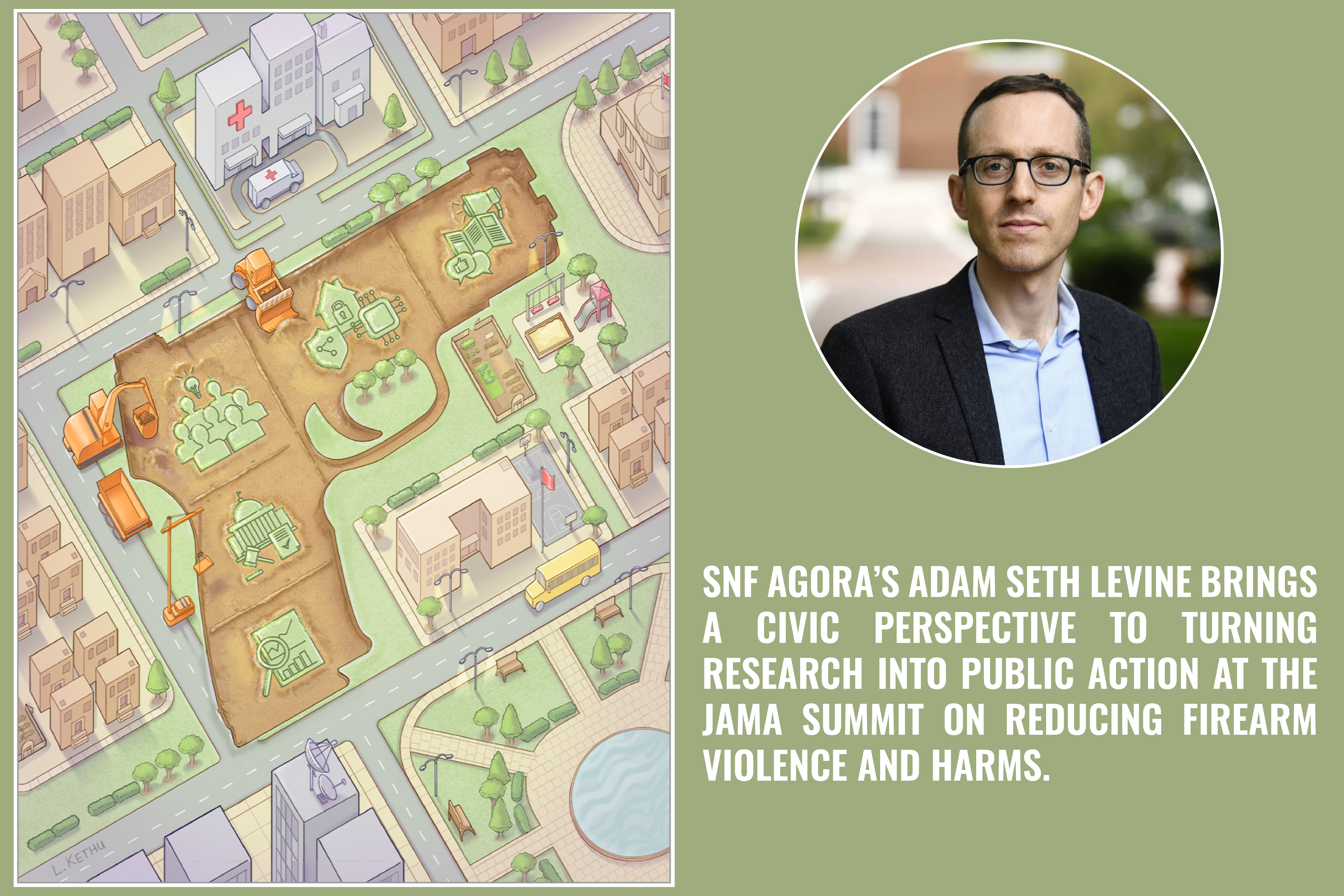
Adam Seth Levine, SNF Agora Professor of Health Policy and Management at Johns Hopkins University, recently gave the Annual Lecture of the Institute for Health and Social Policy, part of the Bloomberg School of Public Health. The lecture, entitled Collaborate Now! How Expertise Becomes Useful in Civic Life, highlighted his research into the transformative power of collaboration in making expertise actionable and demonstrated how these efforts align with the goals of both public health and democracy.
Levine emphasized how public health expertise becomes impactful when embedded in collaborative relationships addressing community needs. A major barrier to this happening is that new collaborative relationships often don’t arise on their own. Instead, decision-makers can have what Levin calls an “unmet desire” to engage. Through examples like his work with climate organizers on volunteer retention, nationally-representative surveys of local policymakers, and interviews with nonprofit leaders, Levine illustrated how a very diverse set of decision-makers working on a host of policies to improve the social determinants of health –climate, transportation, mental health education, and many others – can benefit from yet also express an unmet desire for new collaborative relationships.
At the heart of Levine’s argument about the value of collaboration is the idea that having expertise alone is insufficient—it becomes valuable through intentional collaboration. “It’s not just about sending a report or delivering findings,” he said. “It’s about creating a space for back-and-forth collaboration that makes the research relevant to real-world challenges.” His findings from randomized controlled trials reinforce this, showing that decision-makers are significantly more likely to use research when they engage in meaningful dialogue with researchers, relative to only receiving written summaries of research results. This approach aligns with the missions of the Bloomberg School of Public Health and the SNF Agora Institute, both of which prioritize creating knowledge that is useful in the world beyond the walls of the university.
Levine also addressed the barriers that often prevent collaboration. While time and resources are common obstacles, he pointed to the mental constraints imposed by silos as a critical challenge.
“Silos don’t just limit what people do—they limit what they think is possible,” Levine observed.
He noted that even simple actions like attending a public meeting of local policymakers can feel daunting without encouragement or permission. Such hesitation, Levine argued, represents a democratic failure, as it inhibits participation in civic spaces essential for self-governance. Breaking down these silos, he said, requires normalizing collaboration and fostering environments where collaborative relationship-building is encouraged and supported.
Levine’s research also reflects on the lessons of the COVID-19 pandemic, which highlighted the importance of building relationships before crises arise. “In a crisis, you don’t want to be building collaborations from scratch,” Levine remarked. That’s especially the case in situations where political divides may be present. Proactively establishing relationships enables faster, more effective responses to challenges in public health or broader civic contexts. This forward-thinking approach aligns with the Bloomberg School’s mission to “improve lives millions at a time” and SNF Agora’s focus on inclusive, relational democracy. By fostering these connections, Levine believes public health professionals and civic leaders can address complex challenges with greater agility and impact.
Ultimately, Levine’s work serves as a call to action to embrace collaboration as a vital tool for advancing public health and democracy. “It’s about creating space for conversations that make expertise relevant and actionable,” he explained. Through intentional partnerships, public health experts, policymakers, community members, and nonprofit leaders can strengthen communities, foster equity, and reinforce the democratic fabric of society. By breaking down silos and building relationships, Levine envisions a world where expertise is not only shared but also transformed into meaningful action.

